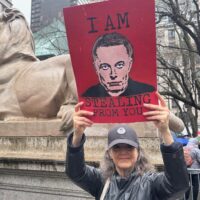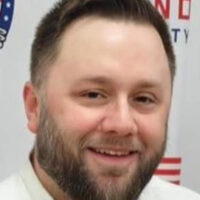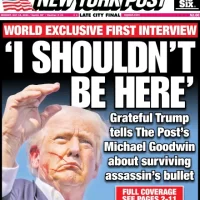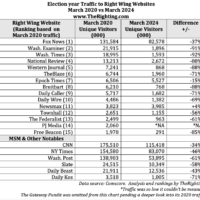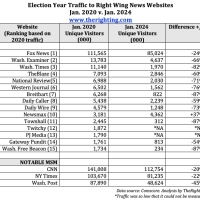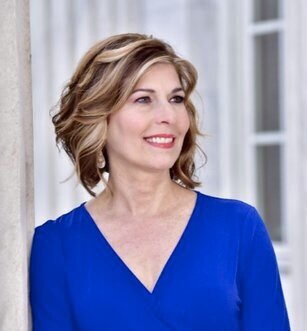
TheRighting Interview with MSM Critic and Author Sharyl Attkisson
Sharyl Attkisson has a list of journalism awards longer than Kayleigh McEnany’s eyelashes. She’s reported on some of the biggest stories of our time for CBS News, CNN, PBS and Sinclair. Yet after leaving CBS News in 2014, she has become a critic and watchdog of mainstream media which has, according to Attkisson, an underlying political narrative. In her latest book, “Slanted: How the News Media Taught Us to Love Censorship and Hate Journalism,” Attkisson takes aim at the practices of several of today’s mainstream media outlets that she charges are leading to the death of news as we once knew it. These practices include: the abandonment of journalism ethics, the ubiquity of false media narratives, the melding of facts and opinions in daily news reporting, and the proliferation of talking heads at the expense of actual news coverage on cable news networks. TheRighting’s Howard Polskin reached out to Atkkisson, who hosts Sinclair’s Sunday morning news program “Full Measure,” to conduct this email interview.
Q. Assuming I had an Aunt Ethel in Iowa who was a small town accountant or librarian, why should tell her to read your book?
Aunt Ethel has probably grown disgusted or disillusioned with the news or maybe has stopped watching altogether because she doesn’t recognize “the news” as being like it used to be or like she expects: a factual recitation of information that’s important and interesting. “Slanted” explains what’s behind the death of the news as we once knew it, tells where to go for reliable information, and provides a sliver of hope for the future.
Q. Several books about media bias have already been written charging the media with bias. What’s different about “Slanted?”
I don’t consider “Slanted” a book about media bias. It’s the third in a trilogy of my books that have tracked the death of the news as we once knew it. The devolution of journalism. This is an even bigger story than simple media bias. What’s different? I include insider insight, not only from my observations and experiences at CNN, CBS and PBS, but I also include never-before-heard reflections from top industry insiders who are also worried about the turn journalism has taken. This includes former top news division executives, reporters and producers at NBC, CBS, MSNBC, CNN, The New York Times and more. Also, I explain how the control of news narratives is linked to the Big Tech control online.
Q. What’s in the water cooler at CBS News that makes former star correspondents like you and Bernie Goldberg spill the beans about how the news gets shaped and supposedly pasteurized before broadcast?
I guess we both share a streak for independence and honesty. For me, it just became too tough to operate in an increasingly dishonest environment. I want to make three things clear, though: it was a trend I recognized happening industry-wise (not just at CBS); most of my years at CBS and most of my bosses and colleagues were terrific (and also recognize this upsetting trend); and there is still some great journalism being conducted at almost all national news organizations— if you can find it!
Q. Based on my long experience in the media, all journalists have had some of their stories killed or neutered. Aren’t a lot of your personal stories in the book just standard reporter bellyaching about the chicken-hearted suits in the corner offices or do you think there’s a more pronounced liberal bias at work?
I describe in the book that stories are killed for legitimate reasons every day having to do with time available on the news and other factors. For most of my 20 years at CBS, I didn’t see that as a problem. The problem became pretty obvious in the years before I quit CBS ahead of my contract when it got to be that political and corporate interests increasingly, successfully intervened to dishonestly shape or stop news stories by contacting corporate news division folks, pressing news division people directly, using organized social media campaigns to controversialize the story/reporter/outlet, etc. My last book, “The Smear: How Shady Political Operatives and Fake News Control What You See, What You Think, and How You Vote” described this industry in quite a bit of detail with insider accounts as to how it all works and the lengths to which these operatives will go to impact what people do and don’t see on the news. It’s not just “liberal bias,” which I never cited in my departure talks (there was a lot of misreporting about that and narrative-pushing which I clear up for the first time in “Slanted”); it’s about powerful interests that cross party affiliations needing to control (for their money interests) what you believe, what studies you do and don’t see, who you hear from, what information you can access.
Q. The pain you felt after several stories of yours didn’t make it on the air came across quite vividly. Tell us about a piece that aired that you’re proud of to this day.
There are so many; I have been lucky to have about 40 great years in this industry. All of my Emmy-nominated work, including numerous stories my last year at CBS before I quit, are solid. I suppose I’m most proud of the stories that went forward despite the most powerful pushback from the interests that don’t want the information put out: prescription drug dangers; vaccine safety issues; the Benghazi attacks and coverup; Fast and Furious; Republican fundraising (undercover investigation); K Street lobbying; Red Cross fraud; Enron.
Q. In “Slanted,” you take issue with the mainstream media for calling out President Trump’s lies. Don’t you believe that he lied constantly almost from the moment he assumed the presidency and his lying was one of the defining characteristics of his presidency?
Certainly the narrative would have people believe that. But I certainly cannot prove any such thing and neither can the media claiming it. I explain in my chapter about the verbiage of the narrative. Here, I tell why the news media (until Trump) avoided calling anybody a “liar,” and how many have inappropriately stretched what they call “lies” (when it comes to Trump).
Q. Shortly after taking office in 2017, President Trump called the press “enemy of the people.” I know that in your book you pointed out quite clearly how previous presidents ran roughshod over the press, but didn’t Trump’s words send a chill up your spine as a professional journalist?
Not even a little bit. I’m not scared of him or criticism. Also, I understand his criticism after so much false and biased reporting targeting him. He was clear early on that he was referring to the dishonest press and dishonest reporting, not all of the press. I am much more chilled by those who may not say how they feel but secretly target reporters with insidious, intrusive, illegal, unconstitutional spy operations; and use federal agents and resources to target them. That happened to me. And it wasn’t the Trump administration.
Q. Two personal questions to end our conversation. Under what circumstances, if any, are you wearing a mask? And will you get a vaccine?
I wear a mask when it’s required, necessary or makes sense. I have tried to listen to and process conflicting information from public health officials. I trust a number of public health officials and virologists who privately differ with various components of public health guidance, and so I listen to them as well. I will have to learn more about the various vaccines before I decide if I will become part of that experiment. To me it’s interesting how the press has been convinced to discuss vaccines in general in the context of coronavirus as if the minute we had one, it would be the solution (i.e. would be safe and effective, no questions asked). There are many individual considerations and, as CDC has acknowledged, the calculation will be different for different people. I believe CDC is warding off people with certain immune issues from the vaccine (I don’t have any such issues that I know of). I believe if you’ve had prior adverse events from vaccination that CDC considers that a possible consideration (I don’t have any of those issues that I know of either and I’m fully vaccinated—and then some). I don’t yet know enough about the various vaccines that have been developed but I will be watching!
Buy “Slanted” at Amazon.
Interested in more news about right-wing websites? SUBSCRIBE to our free daily newsletter to get the latest conservative headlines pushed to your inbox.
Sharyl Attkisson’s latest book “Slanted” is “about powerful interests that cross party affiliations needing to control (for their money interests) what you believe, what studies you do and don’t see, who you hear from, what information you can access.”




